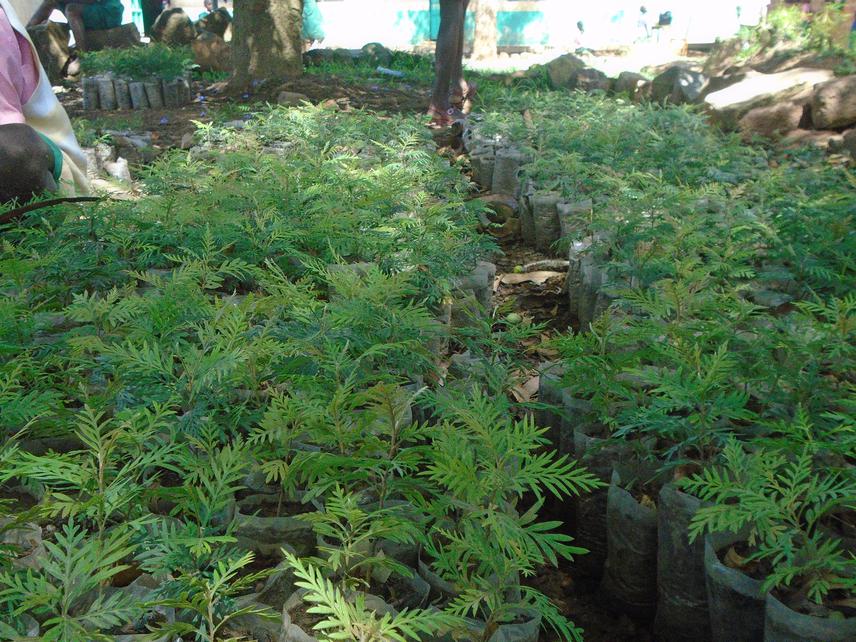Erick Otieno Odhiambo
Other projects
6 Apr 2017
Integrated Village Agroforestry and Energy Efficient Cook Stoves Installation for the Restoration and Conservation of Aduwa Hills Forest Catchment, Siaya, Kenya II
Enhancing Aduwa Hills Forest Conservation through grassroots communities’ involvement in establishing village agroforestry, installation of energy efficient cook stoves, capacity development and Site Conservation Groups formation.

Assorted seedlings for tree planting event.
Aduwa Hills Forest Catchment, located in Central Alego Location, Siaya County, Kenya, is one of the remaining smaller patches of the rainforests in the Western Kenya and plays a vital role in providing habitat to several important endangered wildlife species including declining indigenous plant species, of various ICUN conservation status. This project shall provide an opportune moment to help in the protection and conservation of these species. One of the three most focused wildlife species in this project and ecosystem are the Globally Endangered Golden-rumped Sengi (Rhynchocyon chrysogygus) red-listed as Endangered (EN B1ab(iii)) on the 2010 IUCN Red List of Threatened Species. The distribution of Golden-rumped Sengi is very restricted and endemic to Kenya. The specie population in the area is declining due to poaching, habitat destruction and forest fires. Vervet Monkeys, Baboons, Hare and Antelopes. Common birds includes White-spotted Flufftail, Red-chested Owlet, Yellow-billed Barbet, and African Shrike-flycatcher amongst others. Common trees are Tabernaemontana stapfiana, Macaranga kilimandscharica, Croton megalocarpus, C. macrostachyus, Drypetes gerrardii, Celtis africana, Prunus africana, Neoboutonia macrocalyx and Albizia gummifera.
This project shall lead to enhanced habitat protection, conservation and improved community understanding on their roles in conserving the habitat alongside sustainable methods of forest management. The ultimate goal is to foster improved habitat regeneration through tree plantings, reduced vegetation clearance through introduction of energy efficient cook stoves, introducing alternative livelihoods improvements initiatives to reduce pressure on the overreliance on forestry products including banning of illegal logging and hunting of Golden-rumped Sengi for population increase. Improved habitat vegetation cover shall lead to improved rainfall as the area is a catchment, provision of sustainable free and clean water for the forest communities, improved agricultural production (farming) hence assured food security, soil health regeneration, increased wildlife species and restoration of ecological roles/functions of the forest catchment.